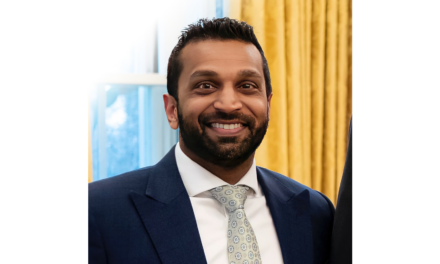We support our Publishers and Content Creators. You can view this story on their website by CLICKING HERE.
In response to former President Donald Trump’s mass deportation plans, states like California and New York have been vocal in their opposition, asserting their authority to protect immigrant communities from federal enforcement.
California has long been at the forefront of this resistance. Under Senator Alex Padilla and Governor Gavin Newsom, the state has emphasized its commitment to shielding immigrants, particularly through Senate Bill 54, the “California Values Act,” which limits state and local cooperation with federal immigration authorities.
Governor Newsom has reaffirmed California’s position, vowing to protect its residents from federal deportation actions. Assembly Speaker Robert Rivas echoed this sentiment, stressing that the state would continue to protect all residents, regardless of immigration status.
New York has similarly resisted federal deportation efforts, though with recent changes. Mayor Eric Adams, initially steadfast in opposing federal immigration enforcement, has shifted his stance. While Adams previously emphasized New York’s role as a sanctuary city, promising not to cooperate with federal immigration authorities, recent developments suggest he is now open to collaborating with federal authorities. Despite this shift, Adams continues to highlight the need to protect immigrant communities, acknowledging their critical role in the city’s economy and society.
New York Governor Kathy Hochul, also a Democrat, stated that she supports deporting immigrants who commit crimes, responding to questions about whether New York is a sanctuary state. She clarified that while she wouldn’t directly label the state as a sanctuary, she would call Immigration and Customs Enforcement (ICE) if someone breaks the law. Hochul emphasized her desire to remove criminals from the state, saying she doesn’t want anyone «terrorizing» citizens.
She also expressed support for allowing migrants with legal status, including those with temporary status, to obtain work permits, noting that New York has 460,000 open jobs. Hochul highlighted that many of the 220,000 migrants who have arrived in New York City since 2022 are legally present, as they are seeking asylum with pending cases.
Additionally, she noted that at least 58,000 migrants are staying in city-funded shelters, and the city has entered into a $220 million agreement to use the Roosevelt Hotel for housing them.
Hochul has faced pressure to strengthen immigrant protections, particularly with President-elect Donald Trump’s mass deportation plans, and the Immigrant Defense Project has urged her to support a bill restricting local law enforcement cooperation with ICE.
The pushback from these states has ignited a national debate over the constitutional authority of states versus the federal government on immigration policy. While the federal government holds authority over immigration matters, states like California and New York argue that local governments should have the power to regulate and protect their own residents, especially vulnerable populations.
The conflict has raised significant questions about the balance of power between federal and state governments. Trump’s mass deportation agenda, which seeks to ramp up enforcement, clashes with the policies of these states that prioritize immigrant welfare. California and New York argue that they should have the discretion to create policies that reflect their values of inclusion and protection for all residents, including undocumented immigrants.
This debate has prompted heated discussions on both sides. Supporters of stricter immigration enforcement argue that states must adhere to federal immigration laws, while opponents maintain that the federal government’s aggressive stance harms communities. As the battle over immigration policy continues to evolve, the actions of California and New York will remain central to the broader conversation about the role of states in immigration enforcement.
Denver Mayor Mike Johnston set off firestorm with vows to resist Trump’s mass deportation plans. His statement that Denverites would resist a federal mass-deportation effort — including a suggestion that he would mobilize the Denver police department to face off with federal and National Guard troops — have generated blowback in Colorado and across the country.
As federal policies on mass deportation continue, some states’ resistance underscores the shifting landscape of immigration politics. The resolution of this issue will have lasting implications for the relationship between state and federal authorities, as well as the future of immigrant rights in the U.S.
About The Author

 Conservative
Conservative  Search
Search Trending
Trending Current News
Current News 





